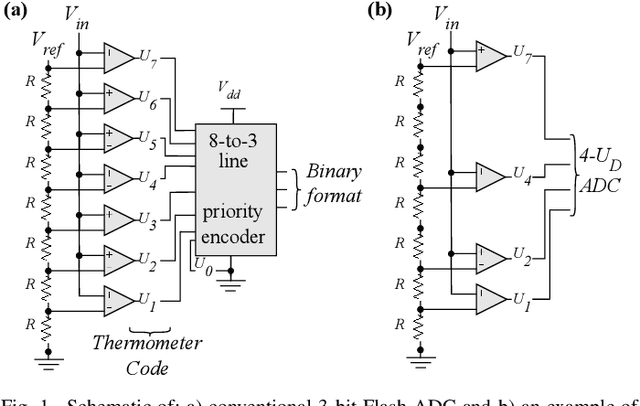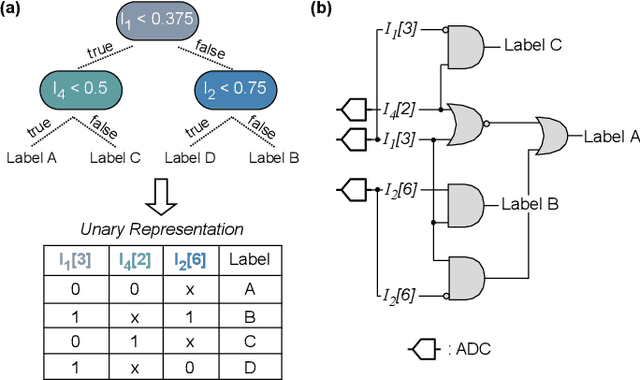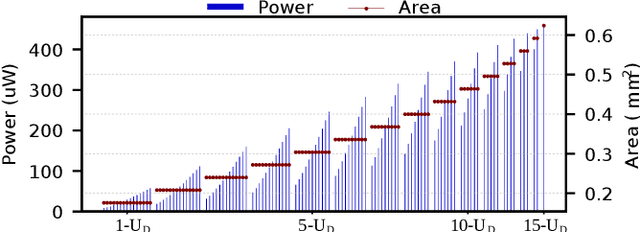Priyanjana Pal
On-sensor Printed Machine Learning Classification via Bespoke ADC and Decision Tree Co-Design
Dec 02, 2023



Abstract:Printed electronics (PE) technology provides cost-effective hardware with unmet customization, due to their low non-recurring engineering and fabrication costs. PE exhibit features such as flexibility, stretchability, porosity, and conformality, which make them a prominent candidate for enabling ubiquitous computing. Still, the large feature sizes in PE limit the realization of complex printed circuits, such as machine learning classifiers, especially when processing sensor inputs is necessary, mainly due to the costly analog-to-digital converters (ADCs). To this end, we propose the design of fully customized ADCs and present, for the first time, a co-design framework for generating bespoke Decision Tree classifiers. Our comprehensive evaluation shows that our co-design enables self-powered operation of on-sensor printed classifiers in all benchmark cases.
 Add to Chrome
Add to Chrome Add to Firefox
Add to Firefox Add to Edge
Add to Edge